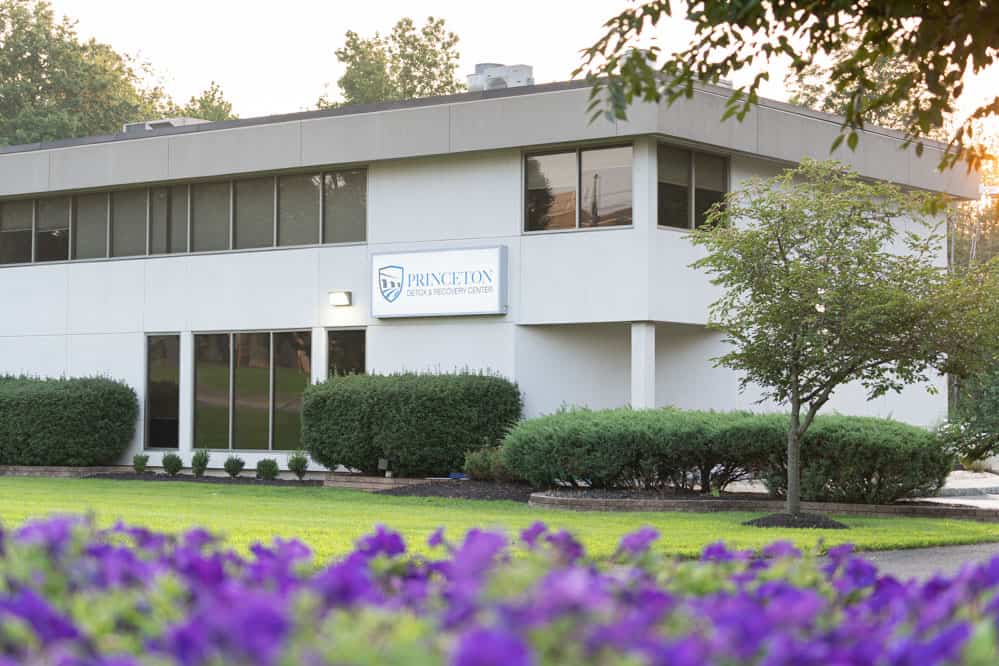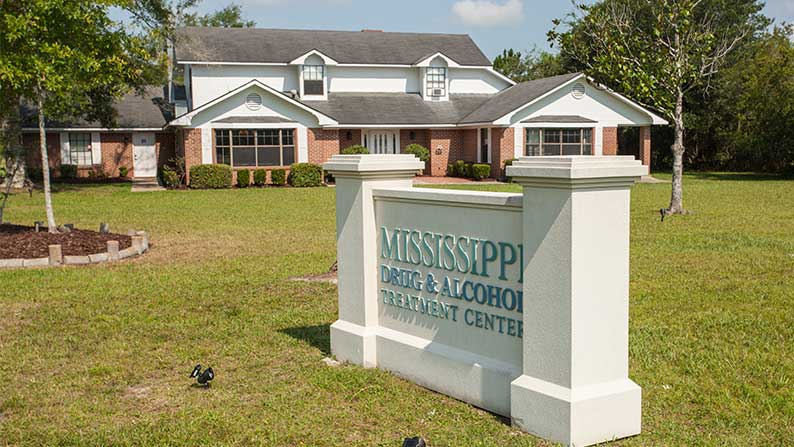New Origins Addiction Treatment Offers Evidence-Based Recovery Plans
New Origins Addiction Treatment Offers Evidence-Based Recovery Plans
Blog Article
Deciphering the Misconceptions and Truths Bordering Addiction Therapy Alternatives
You might believe addiction is just an ethical failing or that therapy just works after striking rock bottom. The reality is a lot a lot more complex. Dependency is a chronic condition that requires continuous treatment, and therapy options vary widely. By understanding the myths and truths surrounding these choices, you can much better navigate the course to healing. What you discover may change your perspective on seeking aid and assistance.
Recognizing Dependency as a Persistent Disease
Comprehending dependency calls for identifying it as a chronic disease, similar to diabetes or heart problem. You might assume of addiction as an ethical failing, but it's important to view it with a clinical lens. Simply like any persistent condition, dependency can involve adjustments in brain chemistry and structure, bring about uncontrollable behavior.When you understand dependency this way, it comes to be clear that therapy isn't concerning determination; it's about taking care of a complex health and wellness concern. This understanding can aid you find the right treatment choices, whether that's medicine, support, or therapy groups.Recognizing dependency as a persistent illness additionally motivates empathy, permitting you to support loved ones dealing with it. You'll see that healing is frequently a long-lasting procedure, needing ongoing care and support. With this viewpoint, you can much better appreciate the difficulties encountered by those influenced and add to a more supportive setting for recovery.
Common Misconceptions About Dependency Treatment
Lots of people hold false impressions concerning dependency therapy that can prevent recuperation initiatives. One typical misconception is that addiction is merely a lack of self-control. This belief disregards the intricate nature of addiction as a chronic illness that impacts brain chemistry. Another myth suggests that treatment only works if someone strikes "record low." Actually, many people can benefit from early treatment, making it important to seek help sooner as opposed to later on. Some also believe that rehabilitation is a one-size-fits-all option. Reliable therapy is individualized and thinks about different variables like specific needs and circumstances. In addition, several believe that as soon as therapy is complete, healing is assured. Recovery is a continuous procedure that calls for continued assistance and techniques. By unmasking these misconceptions, you can come close to dependency therapy with a clearer understanding, inevitably boosting your possibilities of successful recuperation and a healthier life.
The Importance of Evidence-Based Strategies

Sorts Of Therapy Choices Readily Available
After identifying the relevance of evidence-based techniques in dependency therapy, it's crucial to discover the different options offered to you. One popular choice is inpatient treatment, where you remain at a facility for intensive treatment and assistance. This option provides an organized setting, minimizing diversions and concentrating on recovery.Outpatient therapy, on the other hand, enables you to go to therapy sessions while living in your home, giving versatility for job or family commitments. You could also consider medication-assisted therapy, which incorporates drugs with therapy to resolve material use problems effectively.Behavioral therapies, such as Cognitive Behavior Modification (CBT) and Dialectical Behavior Modification (DBT), aid you identify and transform unfavorable thought patterns. Support system, like Twelve step programs (AA) or Narcotics Anonymous (NA), offer area and shared experiences. Each choice has its staminas, so it's crucial to evaluate your requirements and preferences to locate the finest suitable for your recovery trip.
The Function of Assistance Solutions in Recovery
Support systems play a crucial role in your recuperation journey. Engaging with household, friends, and peer networks can provide the support and liability you require to remain on track. When you border on your own with a helpful community, you're most likely to get over challenges and accomplish long lasting change.
Importance of Neighborhood Assistance
Neighborhood support plays a necessary function in addiction recovery, as it promotes a feeling of belonging and liability. When you border yourself with others that understand your battles, you'll locate encouragement and motivation to stay on track. Involving with assistance teams or neighborhood programs produces a safe space where you can share experiences and find out from each various other. These links help minimize sensations of isolation, which frequently come with dependency. By getting involved proactively, you gain insights and approaches that boost your coping abilities. And also, belonging to a neighborhood permits you to commemorate turning points, enhancing your dedication to recovery. Ultimately, the cumulative toughness of a helpful network can make all the difference in your journey towards a healthier, sober life.
Household Participation in Recuperation
While lots of aspects add to effective recovery, family participation typically stands apart as an essential component in the healing process. Your household can give a nurturing atmosphere that cultivates understanding and concern. When they proactively take part in your recuperation journey, they can aid you stay inspired and responsible. Open interaction permits you to share your sensations and thoughts, helping to reconstruct trust fund and strengthen bonds.Additionally, relative can discover addiction and recovery, making them much better geared up to sustain you. Their inspiration can help you deal with challenges and celebrate milestones along the road. Eventually, having a strong family members support group can significantly improve your opportunities of maintaining lasting sobriety and accomplishing a healthier, happier life.
Peer Assistance Networks
Family involvement can considerably boost your recuperation, yet peer assistance networks additionally play a crucial function in your trip. Getting in touch with others who share comparable experiences can offer you with understanding, support, and camaraderie. These networks create a secure space where you can honestly review your difficulties and triumphes without anxiety of judgment.Engaging with peers in healing assists you realize you're not the only one, and it can encourage you to stay with your goals. Routine conferences and shared experiences foster liability, making it simpler to browse challenging times. Whether with support system or on-line discussion forums, these links can strengthen your resolve and offer useful recommendations. Embrace these networks; they can be a lifeline in your healing process.
Personalized Treatment Strategies: Why One Dimension Does Not Fit All
Dependency therapy isn't a one-size-fits-all service; it calls for a tailored method that considers your unique conditions and requirements. Everyone's trip with addiction is different, influenced by elements like personal history, psychological health and wellness, and assistance systems. That's why a tailored treatment strategy is vital for your success.When you involve in a customized strategy, professionals can recognize particular triggers and difficulties you face. This enables them to recommend therapies and interventions that reverberate with you, whether it's cognitive-behavioral treatment, medication-assisted therapy, or all natural approaches.Moreover, your preferences and way of life play a significant function in the therapy process. You're much more likely to stay dedicated to a strategy that really feels right for you. Don't resolve for generic solutions; advocate for a therapy path tailored to your individual requirements. Bear in mind, the a lot more tailored your approach, the better your opportunities for lasting healing.
Recurring Recuperation: The Journey Beyond Treatment
When treatment is over; it's just the start of a lifelong dedication, healing does not end. Constructing a strong support group can make all the distinction in taking care of obstacles and avoiding seclusion. You'll require reliable coping approaches to manage minutes of isolation along the road.

Assistance Solutions Issue A Lot Of
While steering the journey beyond therapy, having a strong support group can make all the distinction in your ongoing healing. Surrounding on your own with people who recognize your battles and objectives develops a safeguard. When you encounter difficulties, buddies, household, and support groups can supply encouragement. They provide accountability, aiding you stay devoted to your recuperation journey. Sharing experiences with others that've strolled a comparable path can impart hope and resilience. Keep in mind, it's all right to lean on them; you're not alone. Look for out links that boost you, and be open concerning your feelings. Growing these partnerships fosters a sense of belonging, which is essential for preserving your progression and steering through the ups and downs of recovery.
Long-lasting Commitment to Healing
Embracing a lifelong dedication to recovery suggests recognizing that the trip does not finish after therapy; it's a constant procedure needing dedication and self-awareness. You'll locate that preserving your healing involves daily options and recurring individual development. It's essential to develop regimens that support your wellness and strengthen the lessons discovered during therapy. Staying gotten in touch with your assistance system, whether through treatment, assistance teams, or relationships, can offer accountability and encouragement. Be positive in attending to triggers and difficulties as they arise, and do not think twice to look for aid when required. Remember, recuperation isn't simply regarding avoiding materials; it has to do with building a satisfying life that straightens with your worths and goals. Embrace this journey, and celebrate your development along the road.
Coping Techniques for Loneliness
Really feeling lonely throughout continuous healing can be difficult, especially as you browse the modifications in your life. To cope, attempt getting to out to supportive family and friends. They can advise you that you're not the only one in this journey. Consider signing up with support system where you can attach with others facing similar battles. Participating in pastimes or tasks you take pleasure in can also assist inhabit your mind and foster connections. Offering is another excellent way to satisfy brand-new people while returning to your area. Don't take too lightly the power of self-care; practicing reflection, mindfulness, or journaling can assist you refine your feelings. New Origins Addiction Treatment Center. Remember, it's alright to look for specialist help if loneliness ends up being frustrating. You are entitled to support as you continue your recuperation trip
Regularly Asked Concerns
Can Dependency Be Dealt With Without Specialist Aid?
Yes, addiction can be managed without professional assistance, however it's difficult. You'll require solid support group, self-control, and reliable coping approaches. However, looking for specialist advice greatly enhances your chances for successful recovery and long lasting change.
What Duty Does Family Members Play in Therapy Success?

Are Alternate Treatments Reliable in Dealing With Dependency?
Alternate therapies can be effective in dealing with dependency (New Origins Addiction Treatment Center). You might discover yoga exercise, art, or mindfulness treatment advantageous, as they use all natural strategies that enhance standard approaches, aiding you take care of stress and anxiety and advertise total health
The Length Of Time Does Dependency Therapy Commonly Last?
Dependency therapy normally lasts anywhere from a couple of weeks to a number of months, depending upon your requirements. It typically includes detox, therapy, and assistance groups, all tailored to help you attain long-term healing and wellness.
What Happens if Therapy Does Not Work?
If therapy does not work, you might really feel prevented, however it's essential to reassess your options. You can discover different therapies, support system, or perhaps a various technique to find what truly reverberates with you.
Final thought
To summarize, comprehending addiction as a persistent illness is important in dispelling misconceptions about therapy. By acknowledging that reliable healing requires evidence-based techniques and personalized treatment, you can take the very first steps toward recovery. Keep in mind, it's alright to look for assistance and lean on assistance systems as you navigate your trip. Recovery isn't a location but a continuous process. Accept the course ahead, and recognize that with the right devices and support, you can accomplish lasting adjustment. Many individuals hold misconceptions regarding dependency treatment that can impede recovery efforts. In addition, many believe that as soon as treatment is total, healing is assured. Recovery does not finish when therapy is over; it's just the beginning of a long-lasting dedication. While maneuvering the journey past therapy, having a solid support system can make all the difference in your continuous recuperation (New Origins Addiction Treatment Center). Embracing a lifelong commitment to healing suggests recognizing that the journey doesn't end after therapy; it's a continual procedure calling for dedication and self-awareness
Report this page